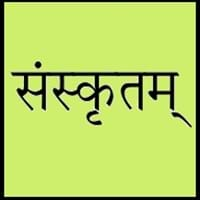Swahili vs Sanskrit
Countries
African Union, Democratic Republic of the Congo, East African Community, Kenya
India
National Language
Burundi, Kenya, Madagascar, Malawi, Mozambique, South Sudan, Tanzania
India
Second Language
Not spoken in any of the countries
Not spoken in any of the countries
Speaking Continents
Africa
Asia
Minority Language
Not spoken in any of the countries
Not spoken in any of the countries
Regulated By
Chama cha Kiswahili cha Taifa (Kenya)
Not Available
Interesting Facts
- Swahili language has borrowed many words from Arabic language.
- The oldest written scripts in swahili language were found in 18th century.
- Sanskrit language has highest number of vocabularies than any other language.
- Sanskrit Language has proved to help in speech therapy, also it increases concentration and helps to learn maths and science better.
Similar To
Burundi, Rwanda, Malawi Languages
Old German Language
Derived From
Arabic Language
Prakrit Language
Alphabets in
Swahili-Alphabets.jpg#200
Sanskrit-Alphabets.jpg#200
Writing Direction
Not Available
Left-To-Right, Horizontal
Hello
Habari
नमस्कारः (namaskāraḥ)
Thank You
Asante
धन्यवादाः (dhanyawādāh)
How Are You?
Habari gani?
कथमस्ति भवान् (kathamasti bhawān)
Good Night
Usiku mwema
शुभरात्री (shubharātrī)
Good Evening
Habari za jioni
शुभः सायंकालः
Good Afternoon
nzuri Alasiri
शुभ दुपार
Good Morning
Habari za asubuhi
सुप्रभातम् (suprabhātam)
Please
tafadhali
कृपया (kripayā)
Sorry
pole
कृपया क्षम्यताम् (kripayā kshamyatām)
Bye
bye
पुनः मिलामः(punah milamah)
I Love You
nakupenda
त्वामनुरजामि (twāmanurajāmi)
Excuse Me
Samahani
कृपया क्षम्यताम् (kripayā kshamyatām)
Dialect 1
Kiunguja
Not present
Where They Speak
Zanzibar island
Not Available
Dialect 2
Kimrima
Not present
Where They Speak
Dar es Salaam
Not Available
Dialect 3
Kimgao
Not present
Where They Speak
Kilwa
Not Available
Speaking Population
Not Available
Not Available
Native Name
Not Available
संस्कृतम् (saṃskṛtam)
Alternative Names
Kisuaheli, Kiswahili
Not Available
French Name
swahili
sanskrit
German Name
Swahili
Sanskrit
Pronunciation
Not Available
[səmskr̩t̪əm]
Ethnicity
Swahili people or Waswahili
Not Available
Origin
6th century
2000 B.C.
Language Family
Niger-Congo Family
Indo-European Family
Subgroup
Benue-Congo
Indo-Iranian
Early Forms
No early forms
Vedic Sanskrit
Standard Forms
Swahili
Sanskrit
Signed Forms
Not Available
Not Available
Scope
Individual, Macrolanguage
Individual
ISO 639 6
Not Available
Not Available
Glottocode
swah1254
sans1269
Linguasphere
99-AUS-m
No data available
Language Type
Living
Ancient
Language Linguistic Typology
Not Available
Subject-Object-Verb
Language Morphological Typology
Not Available
Synthetic
Swahili and Sanskrit Language History
Comparison of Swahili vs Sanskrit language history gives us differences between origin of Swahili and Sanskrit language. History of Swahili language states that this language originated in 6th century whereas history of Sanskrit language states that this language originated in 2000 B.C.. Family of the language also forms a part of history of that language. More on language families of these languages can be found out on Swahili and Sanskrit Language History.
Swahili and Sanskrit Greetings
People around the world use different languages to interact with each other. Even if we cannot communicate fluently in any language, it will always be beneficial to know about some of the common greetings or phrases from that language. This is where Swahili and Sanskrit greetings helps you to understand basic phrases in Swahili and Sanskrit language. Swahili word for "Hello" is Habari or Sanskrit word for "Thank You" is धन्यवादाः (dhanyawādāh). Find more of such common Swahili Greetings and Sanskrit Greetings. These greetings will help you to be more confident when conversing with natives that speak these languages.
Swahili vs Sanskrit Difficulty
The Swahili vs Sanskrit difficulty level basically depends on the number of Swahili Alphabets and Sanskrit Alphabets. Also the number of vowels and consonants in the language plays an important role in deciding the difficulty level of that language. The important points to be considered when we compare Swahili and Sanskrit are the origin, speaking countries, language family, different greetings, speaking population of these languages. Want to know in Swahili and Sanskrit, which language is harder to learn? Time required to learn Swahili is 36 weeks while to learn Sanskrit time required is 20 weeks.





